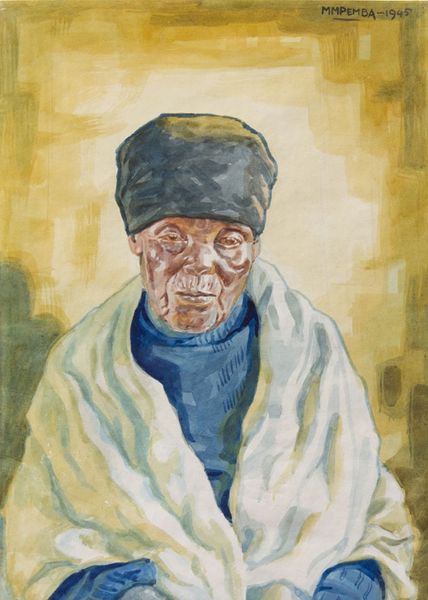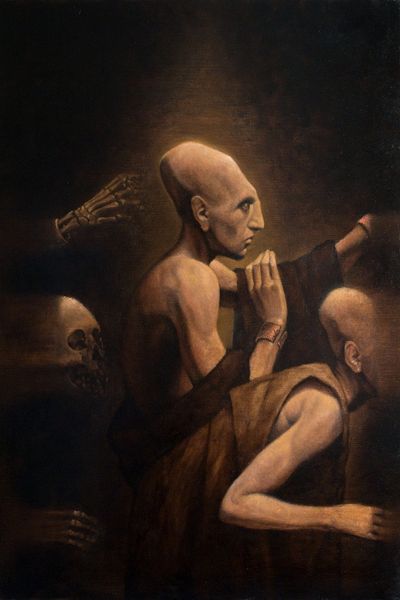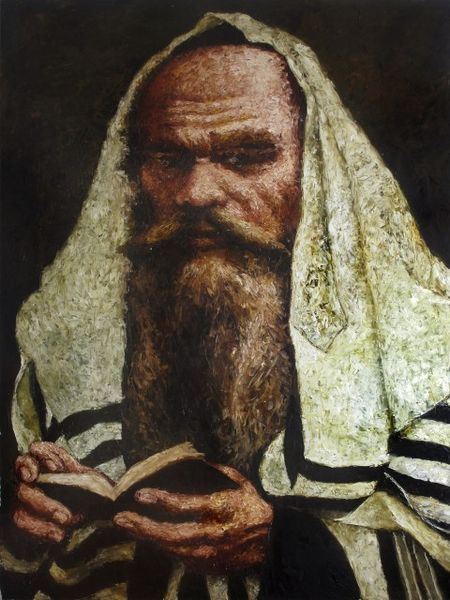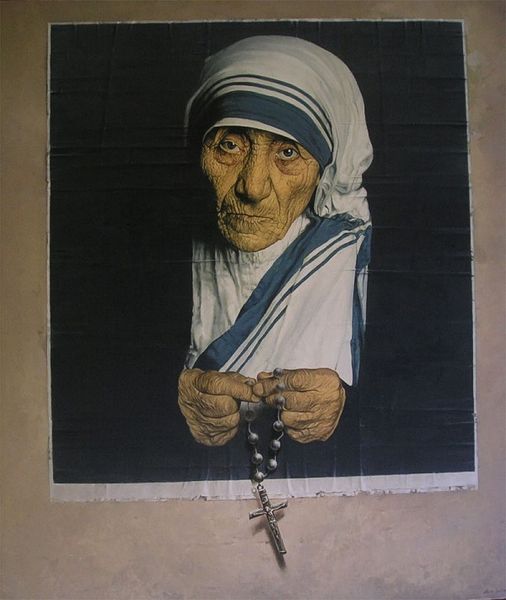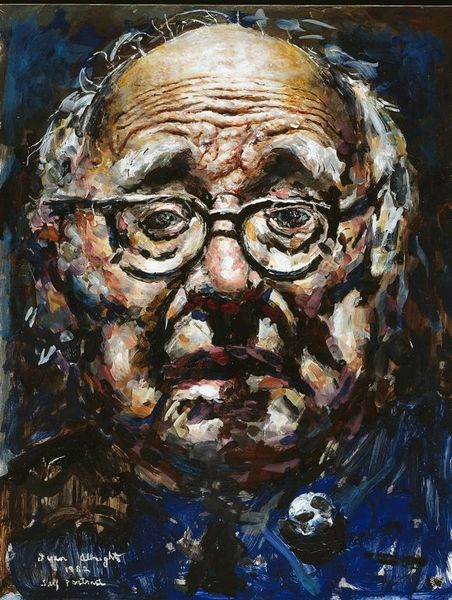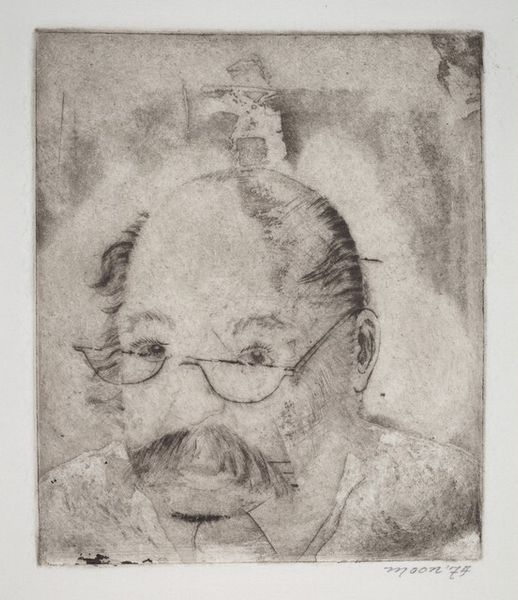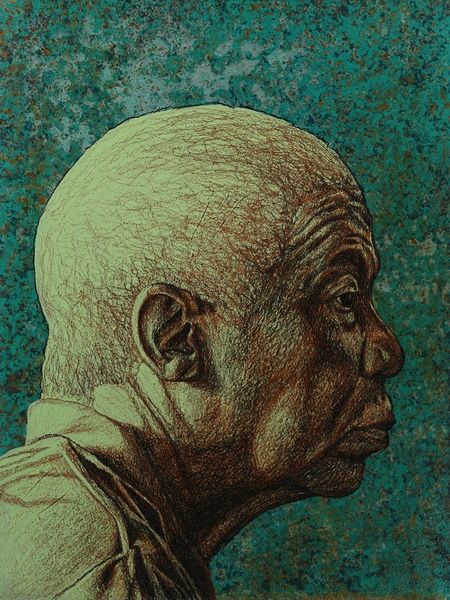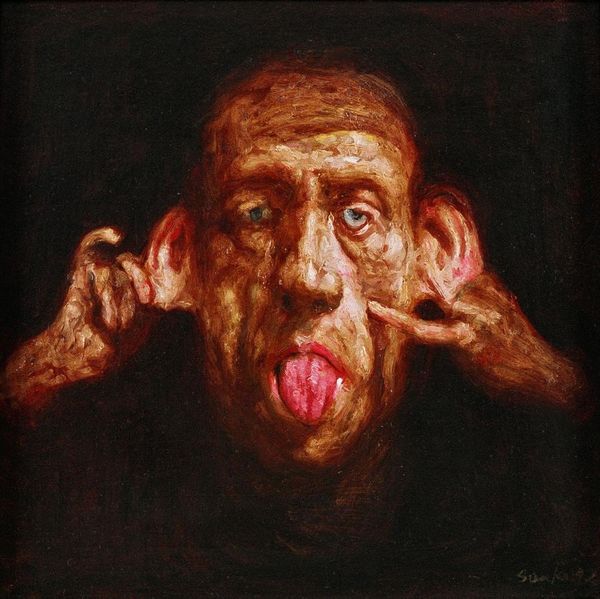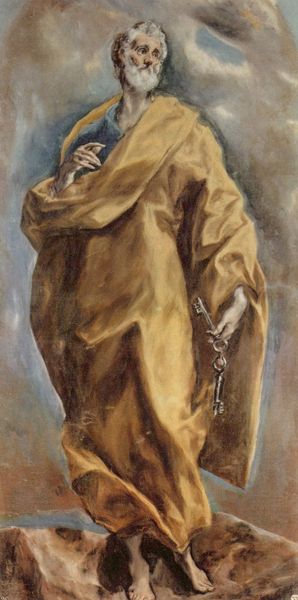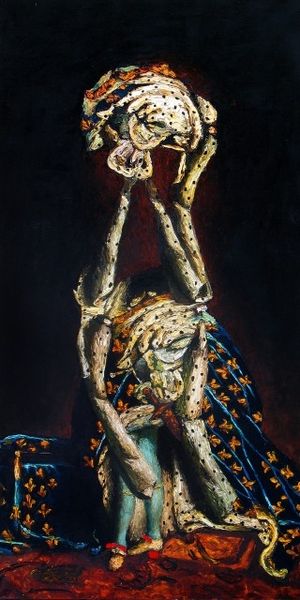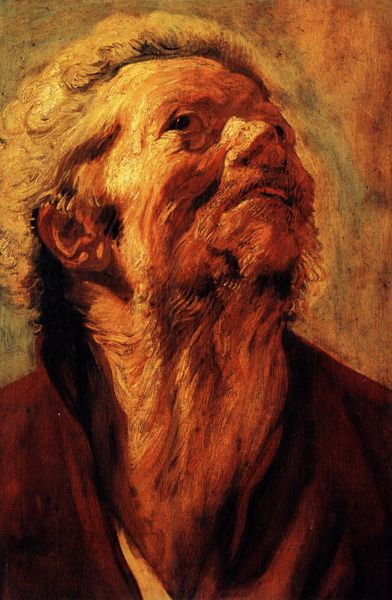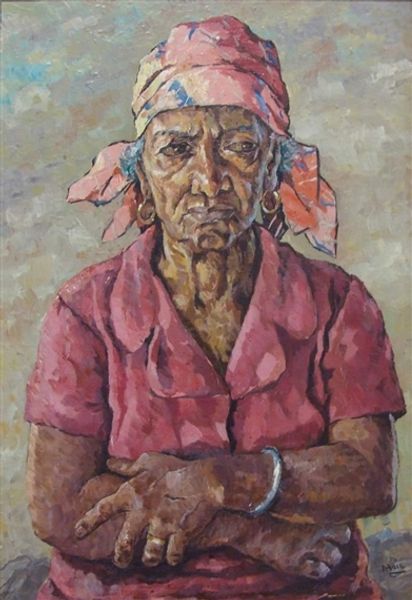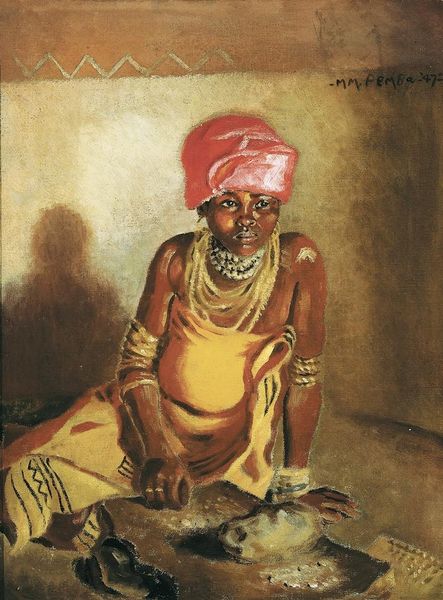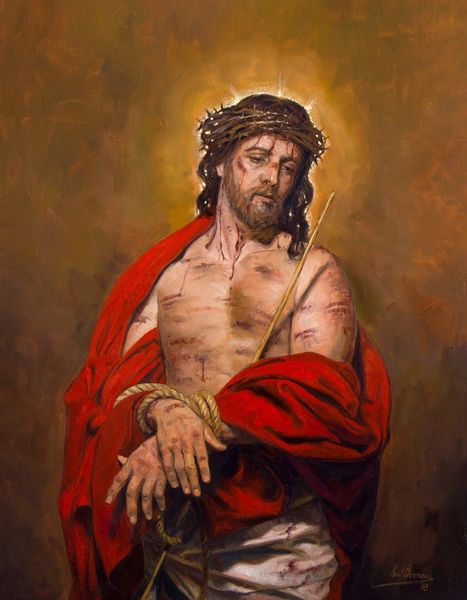
oil-paint
#
portrait
#
portrait
#
oil-paint
#
figuration
#
modernism
Copyright: Alexander Roitburd,Fair Use
Editor: This painting, “If there is no water in the tap, then the Mahatmas have drunk,” painted in 2011 by Alexander Roitburd using oil paints, immediately strikes me as quite… unexpected. The figure resembles Gandhi, but the headdress seems… Jewish? What’s your take on this artwork? Curator: It’s a fascinating piece. Roitburd, working within a post-Soviet Ukrainian context, is deliberately playing with iconography and cultural appropriation. Gandhi, a symbol of non-violent resistance, is here placed in a traditionally Jewish setting, signified by what appears to be a tallit. The title, absurd in its phrasing, hints at scarcity and perhaps societal disillusionment. Consider how the public memory of historical figures shifts with time and place. Editor: So, the incongruity is intentional? Is he trying to make a statement about religious or political identity? Curator: Precisely. He is commenting on the malleability of symbols, and how they can be recontextualized, even humorously, to reflect contemporary anxieties. Post-Soviet societies grapple with identity, historical revisionism, and corruption – does the ‘Mahatma’ metaphorically drinking all the water imply that ideals have been exploited? What role might museums or galleries play in shaping an artist's voice? Editor: That's a powerful point. It makes me rethink how I initially saw it. It's more than just a quirky portrait. It's social commentary. Curator: It is! Roitburd uses portraiture, laden with history, to probe at current societal tensions, forcing the viewer to consider what's been lost, or perhaps distorted, through shifting cultural and political narratives. Editor: This has totally shifted my understanding! Seeing how it engages with post-Soviet anxieties is enlightening. Curator: Absolutely! Considering the context in which art is created really unlocks new depths. It goes beyond the image itself and enters into history.
Comments
No comments
Be the first to comment and join the conversation on the ultimate creative platform.
